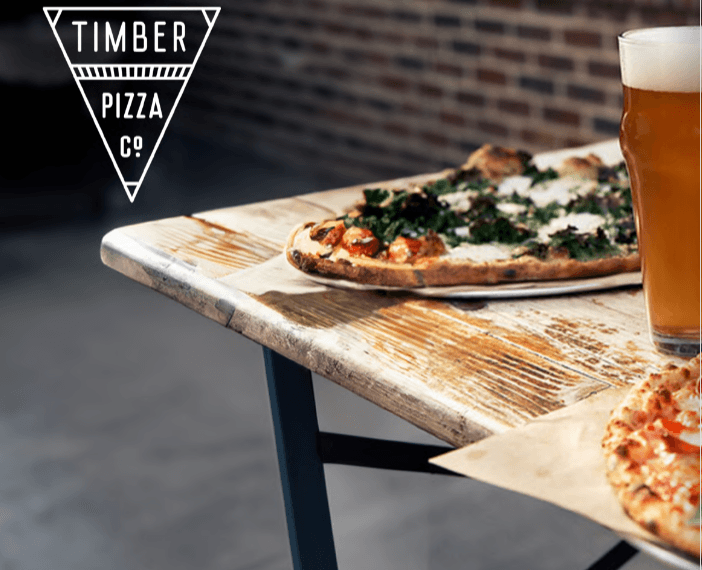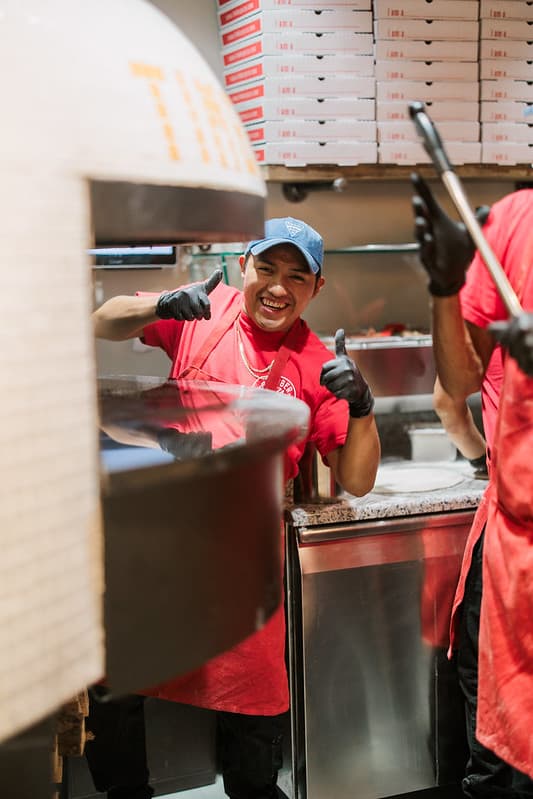Timber Pizza : From Food Trucks To Franchising Innovation

In 2014, a baby-blue 1967 Chevy pickup truck began rolling through the streets of Washington, D.C., selling wood-fired pies to anyone hungry enough to flag it down. The truck belonged to two former tech salesmen, Andrew Dana and Chris Brady, who decided suits and cubicles weren’t for them. With recipes perfected by partner and chef Daniela Moreira, they called their venture Timber Pizza Company—a name that nodded to the wood fueling their oven and the nostalgic, camp-like vibe they wanted the brand to embody. Nearly a decade later, Timber Pizza is no longer just a neighborhood food truck or a single shop in Petworth. Under the leadership of Luke Watson, CEO, and co-founder Chris Brady, President, the company is building itself into a franchise brand. The challenge now is scaling without losing the energy, authenticity, and community ties that gave Timber its cult following.
Scaling Culture and Hustle
When asked what the hardest shift has been in moving from one shop to a franchisable brand, Watson doesn’t hesitate. “Culture is the hardest thing to scale,” he says. “The thing that made us special was the culture we built—and as you bring on new partners and new areas, you have to figure out how to carry that across locations. That’s the hardest part.” Watson describes Timber’s culture as “serving amazing experiences end to end,” which sounds simple enough but, in practice, requires rigorous training, detailed standard operating procedures, and careful partner selection. “We’re making sure we have the right people on our end, and that our partners fully understand our mission and values,” he explains.
For Brady, who helped start Timber in 2014, the company’s DNA is still about grit. “Doing whatever it takes every day is how we started the company,” he says. “That’s the type of energy we’ve tried to instill as we grow—with our partners, employees, and in the community. That’s who we are, and who we always will be.” He recalls those early years fondly, even if the long shifts left their mark physically. “I definitely don’t miss those 15- or 16-hour days, but I earned every ache,” he admits. Hustle has always been part of the Timber ethos, and Watson and Brady are determined that it will remain as the company scales.
Safeguarding Authenticity in Franchising
Franchising often dilutes what made a restaurant special in the first place, but Timber is trying to write a different playbook. “It’s about picking the right partners, choosing the right markets, and staying committed to our values,” Watson says. That means entering communities where Timber can be a positive presence, then embedding in the local fabric through art, beverage programs, and partnerships so that no two stores feel cookie-cutter. “Everyone should feel like, ‘This is our neighborhood pizza shop,’” he explains.
The franchisee journey reflects this philosophy. Before deals are signed, Timber leaders spend time discussing financial and lifestyle goals, ideal markets, and potential sites. Once an agreement is in place, the company helps with real estate and lease negotiations, store design, build-out, training, and grand opening marketing. Post-launch, support continues through supply chain management, recipe consistency, and ongoing operational coaching. National distribution partners provide scale, but Timber insists on local flourishes—from toppings to décor—to keep each location connected to its community.
Even as technology reshapes restaurants, Timber is selective in how it deploys tools. “We want to be your neighborhood pizza shop,” Watson says. “That means a face to a name, interacting with staff, asking questions at the front, and being served your pizza with a smile.” Instead of ordering kiosks, the tech investment goes behind the scenes, where operators gain visibility into customer behavior, sales metrics, and supply chain efficiency. The balance is intentional: human warmth in the dining room, data discipline in the back office.
Building Teams, Markets, and Resilience
Brady’s role has shifted from day-to-day operations to strategy and talent development. “It’s all about the right people in the right seats,” he says. “You empower the next generation of leaders to put their own energy and ideas into making Timber better every day.” Recruiting is a constant task, both at the corporate level and among franchise partners, and Brady calls it a process that will never end. “Without the right people, we won’t get where we want to go,” he adds.
Expansion, meanwhile, is ambitious but deliberate. Watson describes the next three to five years as a regional build-out in the Mid-Atlantic and Southeast. “We believe in quality over quantity,” he says. “If we execute on that—strong partners, strong markets, great guest experiences—national visibility will come naturally.” Growth is aggressive in spirit but measured in execution, with leaders willing to slow down if it means maintaining standards. Brady echoes this: “Expansion has to be intentional—franchise partners, communities, even the specific locations within those communities. Everybody has to be rowing in the same boat.”
That discipline is critical in a crowded market. “There’s a pizza for every occasion,” Watson says. While national giants like Domino’s or Pizza Hut fill one niche, Timber positions itself as the local neighborhood choice. “Times are tight, and we have to earn every dollar people spend with us. Every visit has to deliver an amazing experience.” Menu creativity helps—its kale-and-zucchini pizza remains a bestseller—and inclusivity has become a priority, with in-house gluten-free crusts, vegan cheese, and plant-based toppings ensuring Timber can feed anyone who walks through the door.
The broader market challenges are familiar to every restaurateur: inflation, labor shortages, supply chain volatility. Timber’s approach is to squeeze efficiency without compromising quality—working with suppliers to find shared solutions, rethinking staffing models for productivity, and leveraging tech partners to drive savings. “It’s about making sure we’re not passing higher prices along to guests while staying viable at the restaurant level,” Watson says.
The Road Ahead
Timber’s growth is not just about numbers but about identity. Charleston, South Carolina, where the company recently opened a store, reflects that balance. For Brady, the move was personal. “There’s a lot of fabric between our company and Charleston,” he says, noting similarities to his hometown of Annapolis with its historical, waterside character. “The Charleston community has been incredibly welcoming, and two months in, it feels like the right move.” For him, it underscores Timber’s ability to expand while still feeling local.
Looking further ahead, Watson envisions Timber as a well-known regional brand in the Mid-Atlantic and Southeast, with national recognition following naturally if the model holds. Brady frames the mission more simply: “Continuing to expand through great markets and great people. That’s the future.” Both leaders know the test will be scaling not just pizza but culture—the same hustle and community-first energy that started in the back of a blue Chevy truck.
And as for the name Timber? It still fits. Wood-fired ovens fuel the product, and the brand is meant to conjure summer-camp nostalgia, a mix of warmth, fun, and familiarity. Nearly a decade in, the metaphor has proved durable. Timber Pizza is no longer just a scrappy food truck, but its founders and leaders are betting they can keep that original spark alive as the company takes its next steps.
